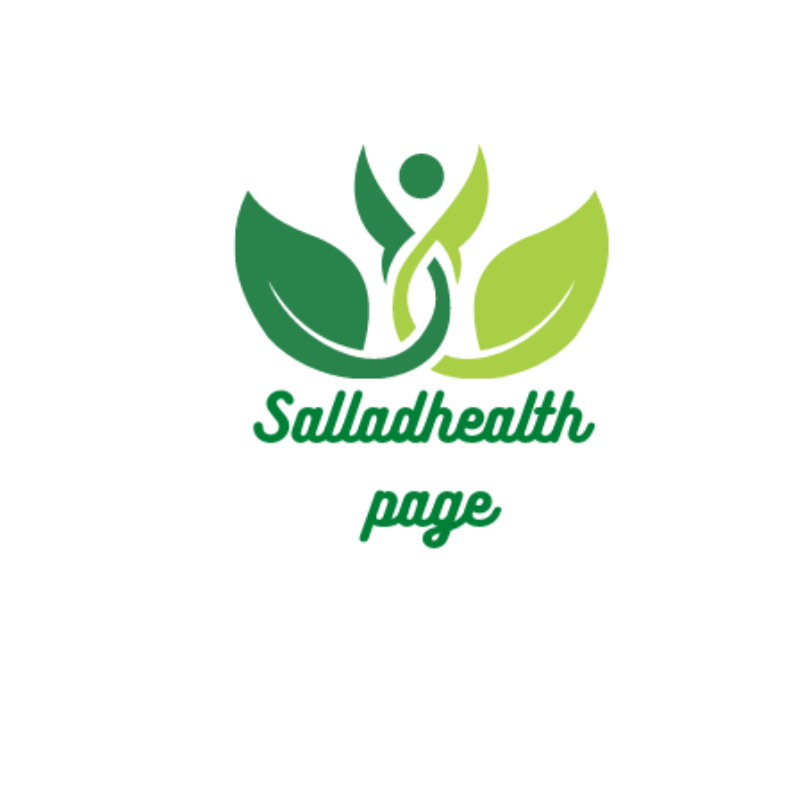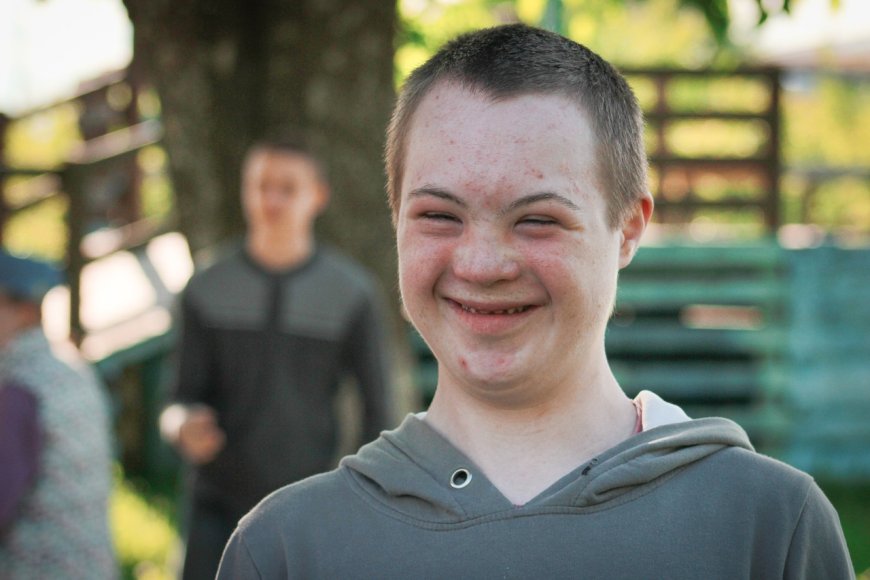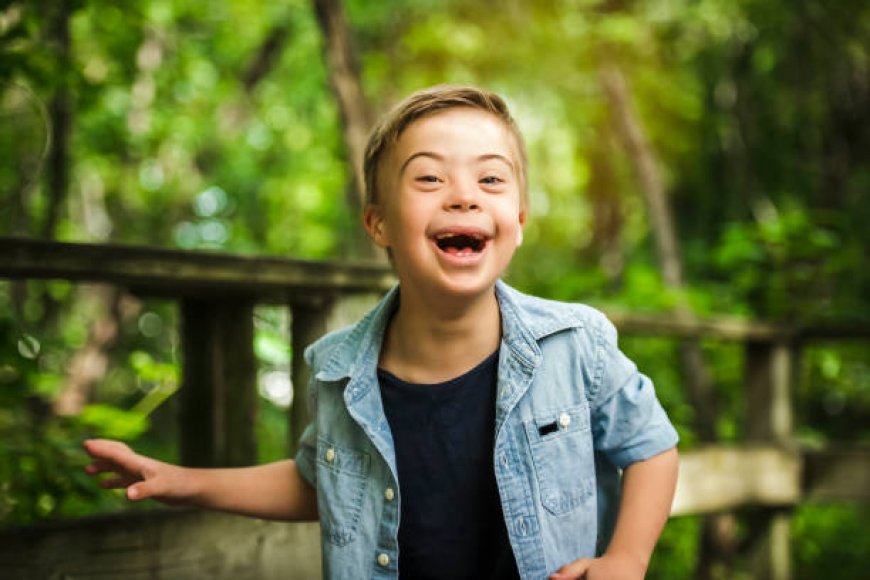“Unveiling Down Syndrome: What You Need To Know”
March is Down Syndrome Awareness Month! Join us in advocating for inclusivity, understanding, and celebrating the unique abilities of individuals with Down syndrome.
Down syndrome is a chromosomal condition that affects millions of people worldwide. While it's relatively common, there are still many misconceptions and misunderstandings surrounding this condition. In this article, we'll explore what Down syndrome is, the realities of living with it, and the support available for individuals and families.
What is Down Syndrome?
Down syndrome, also known as trisomy 21, is a genetic disorder caused by the presence of an extra copy of chromosome 21. Normally, each cell in the human body contains 23 pairs of chromosomes, but individuals with Down syndrome have a full or partial extra copy of chromosome 21, totaling 47 chromosomes instead of the usual 46. This extra genetic material affects the development of the body and brain, leading to varying degrees of physical and intellectual disabilities.
Common Misconceptions
1. Down Syndrome is Rare
Fact: Down syndrome is one of the most common chromosomal conditions, occurring in about 1 in every 700 births worldwide. It is not related to race, nationality, or socioeconomic status.
2. People with Down Syndrome Are Always Happy
Myth: While individuals with Down syndrome are often described as joyful and loving, they experience the full range of emotions just like anyone else. It's important to avoid stereotyping and recognize them as individuals with unique personalities.
3. Down Syndrome is Hereditary
Fact: In most cases, Down syndrome is not inherited. It occurs randomly during the formation of reproductive cells in a parent, resulting in the extra chromosome in the child. However, in about 1% of cases, it can be passed from parent to child.
Characteristics and Health Considerations
Physical Features:
Individuals with Down syndrome often have certain physical features, such as almond-shaped eyes, a flat facial profile, and a smaller-than-average stature. These characteristics can vary widely and may be more or less pronounced.
Health Concerns:
People with Down syndrome are at an increased risk for certain health conditions, including congenital heart defects, respiratory issues, hearing loss, and thyroid problems. Regular medical check-ups and early intervention can help manage these concerns.
Living with Down Syndrome
Education:
With appropriate support and resources, many individuals with Down syndrome can learn and thrive in educational settings. Special education programs, speech therapy, and occupational therapy can all contribute to their development.
Employment:
As awareness grows about the abilities of individuals with Down syndrome, more opportunities for employment and vocational training are becoming available. Many find meaningful work in a variety of fields.
Independent Living:
While some individuals with Down syndrome may require ongoing support, many are capable of living independently or semi-independently with the right assistance and accommodations.
Support and Resources
Family Support:
Families of individuals with Down syndrome often benefit from connecting with support groups and organizations. These groups provide emotional support, information, and resources to navigate the challenges and celebrate the successes of raising a child with Down syndrome.
Early Intervention Programs:
Early intervention services, such as physical therapy, speech therapy, and developmental programs, are crucial for addressing developmental delays and maximizing potential from an early age.
Community Inclusion:
Inclusive community programs and initiatives help foster acceptance and integration of individuals with Down syndrome into society. This includes access to recreational activities, social groups, and cultural events.
Advocacy:
Advocacy organizations work tirelessly to promote the rights and inclusion of individuals with Down syndrome. They advocate for policies that support equal opportunities in education, employment, and healthcare.
Overcoming Stigma and Promoting Inclusivity
Breaking Stereotypes:
One of the biggest challenges for individuals with Down syndrome is overcoming stereotypes and misconceptions. Society often focuses on limitations rather than capabilities. By highlighting success stories and showcasing the diverse talents of individuals with Down syndrome, we can challenge these stereotypes.
Education and Awareness:
Increasing awareness and understanding of Down syndrome is crucial for fostering inclusivity. Schools, workplaces, and communities can benefit from educational programs that teach about the condition, its characteristics, and how to support individuals with Down syndrome.
Celebrating Diversity:
Every person, regardless of ability, brings a unique perspective and set of talents to the table. Embracing diversity enriches our communities and allows individuals with Down syndrome to shine. Events like World Down syndrome Day (March 21st) provide opportunities to celebrate diversity and promote acceptance.
The Role of Families and Caregivers
Unconditional Love:
Families and caregivers play a vital role in the lives of individuals with Down syndrome. Their unconditional love, advocacy, and support are crucial for helping individuals reach their full potential.
Empowerment:
Empowering individuals with Down syndrome to advocate for themselves is an important aspect of family support. Teaching self-advocacy skills and fostering independence builds confidence and resilience.
Financial Planning:
Planning for the future is essential for families of individuals with Down syndrome. Financial considerations, such as setting up special needs trusts and understanding government benefit programs, can provide security and peace of mind.
Conclusion
Down syndrome is a genetic condition that presents challenges, but it does not define the individual. With early intervention, education, and support, individuals with Down syndrome can lead fulfilling lives and make valuable contributions to their communities. It's essential to dispel myths, foster understanding, and promote inclusivity to create a world where everyone is valued for their unique abilities. Through continued research, advocacy, and support, we can ensure that individuals with Down syndrome have the opportunities and resources they need to thrive.
What's Your Reaction?











































